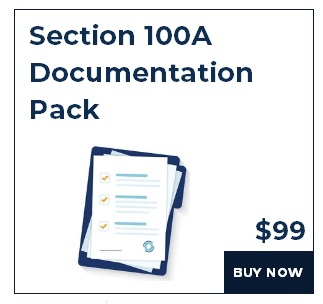
Birchstone Insights
Newton v FCT (1958) 98 CLR 1 – The genesis of “ordinary family or commercial dealing”
This week we travel back in time to consider Newton – the case from which the ‘ordinary family or commercial dealing’ exception in section 100A emanates.
Newton was decided in the context of section 260 of the Income Tax Assessment Act 1936 (Cth), which was the predecessor section to Part IVA, the current general anti-avoidance provision.
The text of section 260 did not refer to ordinary family or commercial dealings. This concept was created by the Privy Council. In an often-cited passage, Lord Denning stated that:
In applying the section you must, by the very words of it, look at the arrangement itself and see which is its effect – which it does – irrespective of the motives of the persons who made it. …. In order to bring the arrangement within the section you must be able to predicate – by looking at the overt acts by which it was implemented – that it was implemented in that particular way so as to avoid tax. If you cannot so predicate, but have to acknowledge that the transactions are capable of explanation by reference to ordinary business or family dealing, without necessarily being labelled as a means to avoid tax, then the arrangement does not come within the section [emphasis added].
He then gave the following examples of transactions that would be ordinary business or family dealings:
- transfer of shares cum dividend;
- a private company being turned into a non-private company; and
- a declaration of trust made by a father in favour of his wife and daughter.
The application of section 260 involved a dichotomy – that is, a transaction was stamped as one entered into to avoid tax or one entered into in the course of ordinary family or commercial dealing. In Prestige Motors the Court cautioned that “when words used in a judgment are translated into the legislation, the change of context may alter the meaning of the words from that which they originally bore.” The Court then questioned, but did not decide, whether section 100A has a similar dichotomy between a transaction entered into with a purpose of reducing tax and a transaction that is an ordinary family or commercial dealing.
This leaves open the question of whether an agreement that has a tax avoidance purpose can, for the purposes of section 100A, nevertheless be an ordinary family or commercial dealing? If a trustee takes into account the tax liabilities of beneficiaries when deciding who it will distribute to, and distributes in a way so that the least amount of tax is payable (which we must acknowledge is an intended outcome of tax planning), can the arrangement still be an ordinary family or commercial dealing? We say “yes” but this is something yet to be decided by the courts.
Next week we will consider two further cases on ordinary family or commercial dealing in the context of section 260: Peate and Jones.
Daniel Taborsky, Managing Director
ATO Update
Class Ruling
The ATO has issued Class Ruling CR 2021/58 which sets out the income tax consequences of payments made by Tennis Australia Limited to tennis officials to officiate at non-professional tennis events within Australia.
State Taxes
NSW: Landholder duty
Revenue NSW has released Revenue Ruling DUT 051 which sets out when the Chief Commissioner will lodge a caveat over land for outstanding landholder duty under section 154 of the Duties Act 1997 (NSW).
ACT: COVID-19 land tax relief
The ACT Government has announced that residential landlords who offer rent relief will be eligible for a credit on their residential land tax of up to $100 per week.
Cases
Mfula v FCT [2021] AATA 3067 – AAT denies doctor’s claim for ‘work-related’ expenses
The AAT has upheld the Commissioner’s decision to disallow a doctor’s claims for supposed work-related car, travel, accommodation and meal expenses, finding that they were losses or outgoings of a private or domestic nature and therefore not deductible.
The taxpayer lived with his family in Melbourne and undertook various locum medical assignments throughout New South Wales and Victoria during the 2015-16 income year. Under the terms of his ‘employment agreement’ with the facilitating agency, the taxpayer was paid the travel and accommodation costs of each assignment as well as a meal allowance alongside his hourly rate. He reported a taxable income of $275,264 for the 2015-16 income year, after claiming $6,600 for car expenses and $43,366 for other work-related expenses. Following an audit, the Commissioner disallowed the car expenses and $42,701 of the other expenses, issuing an amended assessment increasing the taxpayer’s taxable income to $325,706. After his objection was disallowed, the taxpayer applied to the AAT for review.
The AAT affirmed the objection decision. The AAT found the taxpayer’s flights and car travel (to the airport and his Melbourne workplace) were necessary preconditions to or prerequisites of the taxpayer performing the work that produced his assessable income, and therefore the associated expenses were not deductible. Significantly, the taxpayer had not discharged his onus of proving he ran his business from home. The AAT also held the accommodation and meal expenses were not deductible whether paid as an allowance or not, observing an employee cannot deduct living expenses where they live far away from their workplace due to personal circumstances. Moreover, even if the taxpayer had been travelling for work, the AAT still would have denied a deduction for the living expenses as he had not substantiated them in accordance with Division 900 of the Income Tax Assessment Act 1997 (Cth).
Royal Lion Capital Pty Ltd v Federal Commissioner of Taxation [2021] AATA 3049 – AAT affirms GST assessments
The AAT has affirmed the Commissioner’s decision to disallow the taxpayer’s objection to GST assessments and confirmed the taxpayer was required to be registered for GST.
When the taxpayer company incorporated in 2017, it registered a TFN and an ABN but did not register for GST. Following an audit of the taxpayer’s bank transactions, which included 22 relevant deposits, the ATO determined that the taxpayer had exceeded the GST turnover threshold ($75,000) and was required to be registered for GST. On this basis, the Commissioner issued the taxpayer with GST assessments and penalties for the periods in question. The taxpayer claimed that 14 of the 22 transactions should not be treated as GST income, as they were loans or amounts received as an intermediary. The ATO disallowed the taxpayer’s objection, following which the taxpayer subsequently applied to the AAT for review of the objection decision.
In affirming the objection decision, the AAT found that the taxpayer was required to be registered for GST as there was no credible evidence to the contrary. The AAT found that the evidence provided by the taxpayer was not reliable, and did not provide a clear picture of the relevant arrangements. Rather, the evidence provided by the taxpayer was based on assertions made by the taxpayer’s representative (sole director and company secretary).
WYPF v Commissioner of Taxation [2021] AATA 3050 – Margin scheme
The AAT has held that the value of building works performed by a taxpayer as a condition of acquiring a long-term lease did not constitute consideration for the purposes of the margin scheme.
The taxpayer paid $14 million to acquire a ‘holding lease’ from the ACT Land Development Authority. The taxpayer would be granted further 99-year leases over the land if they completed preparatory development works, subject to forfeiture if they didn’t undertake building works within 48 months. The taxpayer had elected to calculate its GST liability from the sale of the developed property using the margin scheme method, but only accounted for the monetary acquisition of $14million and did not factor in the preparatory works ($29.7 million) or building costs ($77 million) in calculating its margin. The taxpayer subsequently claimed that they had overpaid GST by not including the cost of the preparatory or building works. The ATO disallowed the taxpayer’s objection following which the taxpayer applied to the AAT.
The AAT set aside the Commissioner’s objection decisions and remitted them for re-assessment. In favour of the taxpayer, the AAT found that the GST assessments were excessive in regards to the exclusion of the costs of the preparatory works, as these constituted non-monetary consideration for acquiring the land (which the Commissioner had accepted prior to the hearing). It also held that the taxpayer had paid excess GST because the preparatory costs had not been passed on to the buyers – highlighted by the taxpayer not deducting the preparatory costs when calculating the margin and pricing to the market. However, the AAT held the building works were not non-monetary consideration for the taxpayer’s acquisition of the land, but were a condition of the 99-year leases granted after the preparatory works were performed.
Appeals
The High Court has refused to grant the taxpayer special leave to appeal from the decision of the Full Federal Court in Coal of Queensland Pty Ltd v Innovation and Science Australia [2021] FCAFC 54 (first covered in the Birchstone Brief for the week ended 30 April 2021). In that case, the Full Federal Court held that a taxpayer’s coal mining activities were not core or supporting R&D activities.

